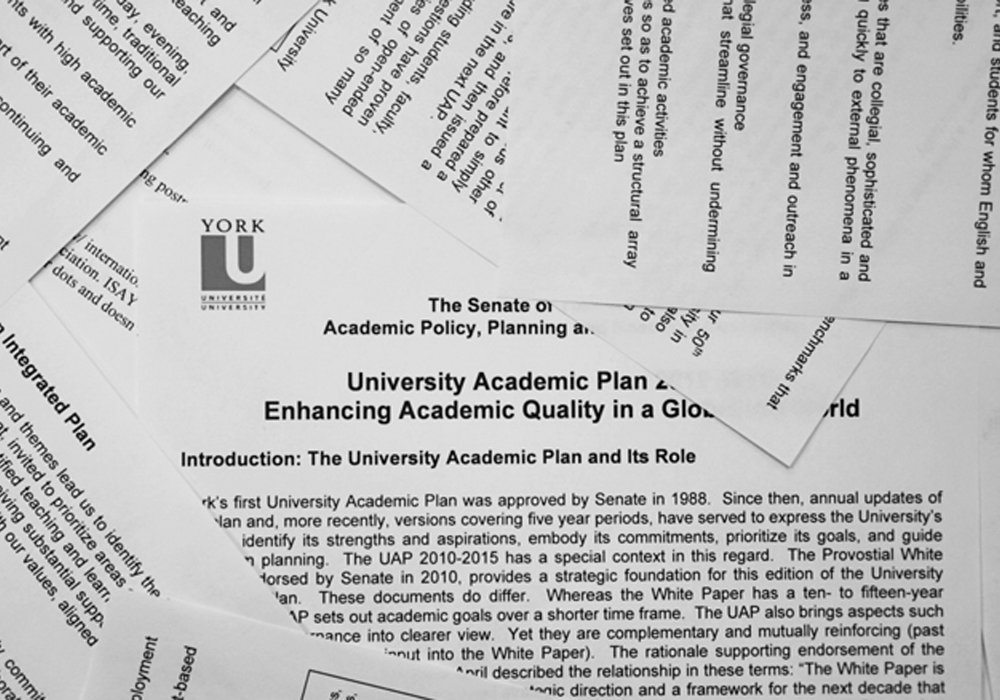A survey distributed to students, staff, and faculty soliciting participation in York’s planning process gathered a one per cent response rate.
617 students, faculty, staff, and other individuals responded to a survey emailed by York, which is less than one per cent out of a total campus population of over 86,000.
419 respondents (68 per cent) were students, 117 (19 per cent) were faculty, and 67 (11 per cent) were staff.
The survey is part of several efforts by York to entice the campus population in a series of consultations, which will decide York’s academic future.
According to Rebecca Pillai Riddell, Chair of Senate Academic Policy, Planning and Research Committee, “the same things were coming up” in regards to community responses, no matter the response method.
The anonymous community survey results available on York’s website reveal other concerns such as bloated bureaucracy and overpaid administrative staff.
One undergraduate student listed underfunding, violent Marxism, anti-Israel activities, and radical feminism as values that distinguish York.
President Mamdouh Shoukri emphasized the importance of planning in his presentation at the University Academic Plan forum last month.
[su_quote]“The planning process enables you to appreciate possible alternatives,” says Shoukri.[/su_quote]
He quotes Dwight Eisenhower, saying that plans are useless when it comes to battle, but planning is indispensable.
The UAP forum is one of the final steps in York’s cyclical planning process and follows planning documents such as the 2014-2017 Strategic Mandate Agreement, Local Integrated Resource Plans, and the 2015-2020 Integrated Institutional Resource Plan.
In December, York students, staff and faculty gathered to discuss the 2015-2020 University Academic Plan to shape planning and governance at York in the coming years.
UAP 2015-2020 is expected to be finalized in February, and is one of York’s most important planning documents.
The 2015-2020 edition identifies priority areas such as innovative academic programs, increased achievement in scholarship, research and creative activities, increased student success, enhanced campus experience and enhanced engagement with the community.
These priority areas mirror priorities identified in the Integrated Institutional Resource Plan.
Participants formed groups to discuss specific initiatives to pursue while quantifying progress made, with discussion facilitators reporting findings to the plenary.
Some findings included considering York pride with respect to campus infrastructure, enhancing the campus experience with a view to providing “down time” space for students to use between classes and ensuring consistency in academic advising throughout the university by way of mentoring and cross-training programs for faculty.
It was noted that faculty could be trained in mental health support to ensure students do not feel that mental health support is distinct from the classroom.
Angelo Belcastro, Chair, School of Kinesiology, suggested implementing a culture hub on campus reflective of concerns on campus, including safety and security issues.
Proposals for community engagement, a traditionally difficult area at York, include improvements to York’s websites and online presence.
Alex Kvaskov, Assistant News Editor
Featured image courtesy of Michael Zusev, Photo Editor





Pidgeon is a good guy but not correct on a few things. Obama was born in kenya, or do you dionusct all the news from kenya and the kenyans saying that he was several years ago.